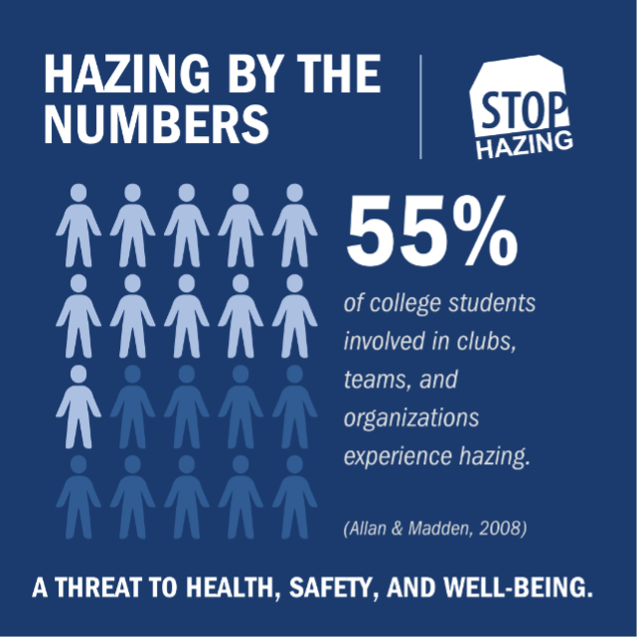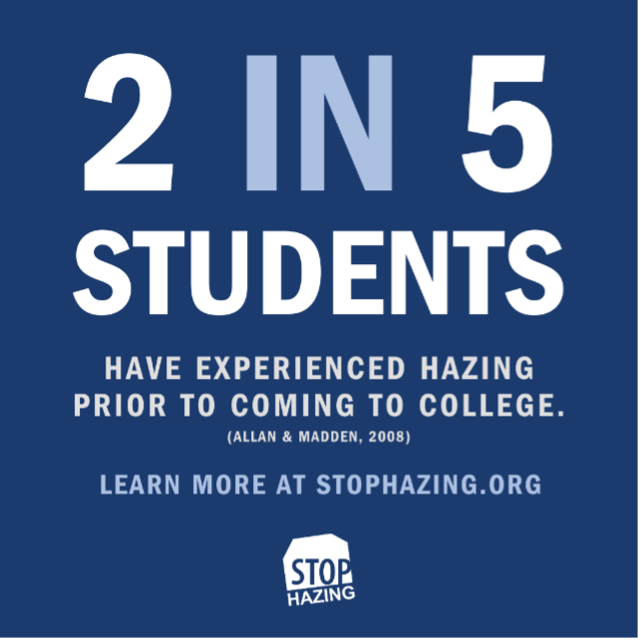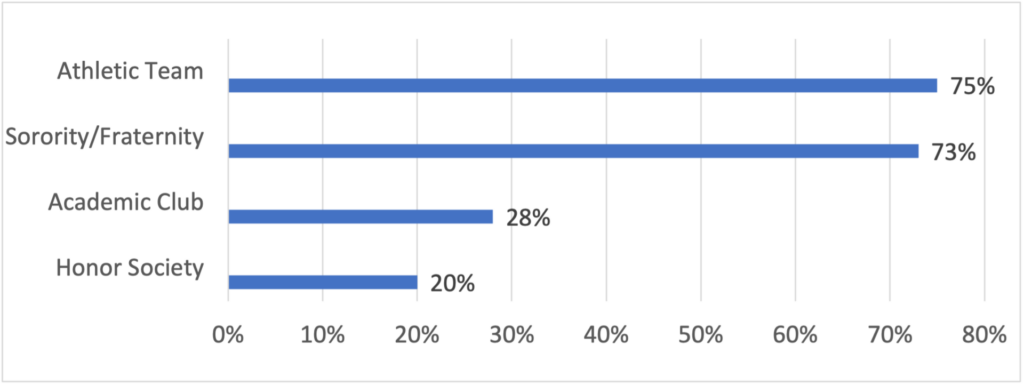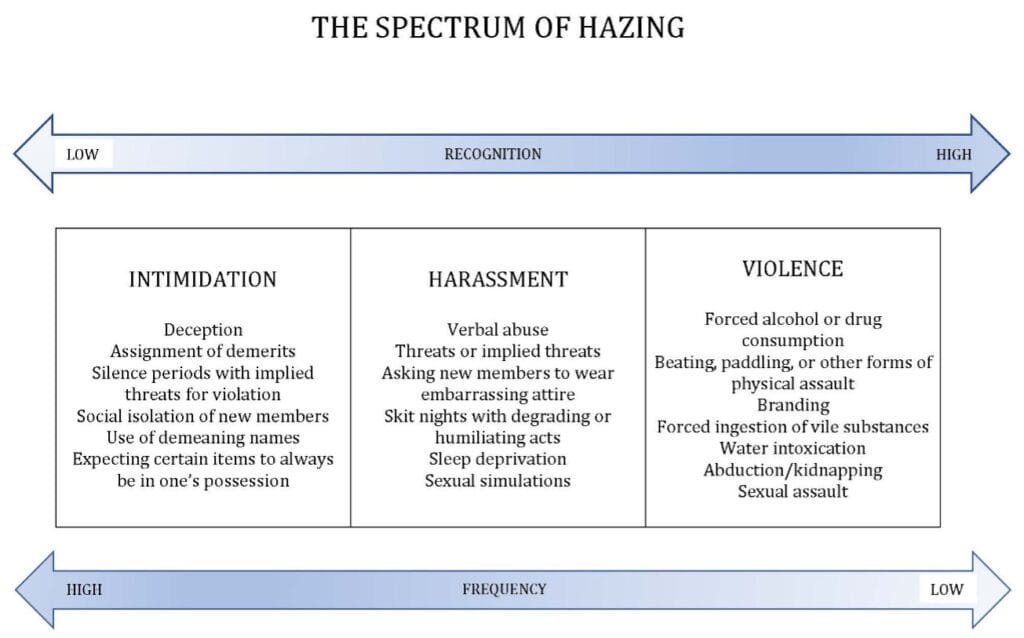
Hazing Prevention and Training
How to Prevent Hazing
All students and student groups share the duty to promote a climate that supports intellectual growth, civic-minded behavior, and the honoring of human worth. They should serve as a source of inspiration and personal growth for both current and prospective members. Additionally, students and organizations are entrusted with making thoughtful decisions regarding each individual’s capacity to engage in group activities and fulfill associated expectations.
StopHazing.org has created a “Hazing Prevention Framework” that was designed to portray how each component of the Framework is distinct, but also related to one another and mutually reinforcing. The Framework is presented in a non-linear format to show how one part of the Framework flows into the other. There are eight components: Commitment, Capacity, Cultural Competence, Assessment, Planning, Evaluation, Sustainability, and Implementation. This Framework serves as an assessment and benchmarking tool for goal setting and planning.


Types of Groups Experiencing Hazing


Common Hazing Excuses
- “It’s tradition”
- “No one will get hurt”
- “It’s funny – what’s the problem?”
- “They like it; they said it was okay”
- “It’s okay if they don’t complain”
- “It helps build team cohesiveness and unity”
- “I went through it, it’s a rite of passage”
Ben U Hazing Prevention and Training Initiatives
Become an Empowered Bystander. Foster community change and speak up against hazing. The more people that speak up and bring attention to this issue the less likely the potential damaging behaviors will occur or be normalized. This process makes space for hazing victim voices to be heard and taken seriously. It strengthens a culture of accountability and upholds the commitment to your organization and the University. Each of us has a responsibility to ensure hazing behaviors do not persist within our organizations, teams, or in our campus community.
On-Campus Programming and Training
The University has put together awareness programming to fit everyone’s schedule. We will be presenting in-person discussion workshops covering Empowered Bystander and ethical leadership as well as online training through the D2L learning management system. If you would like an in-person workshop please send an email to Michi Dubes at [email protected] or call 630-829-6364. Student organizations like clubs and athletic teams can benefit from this workshop.
